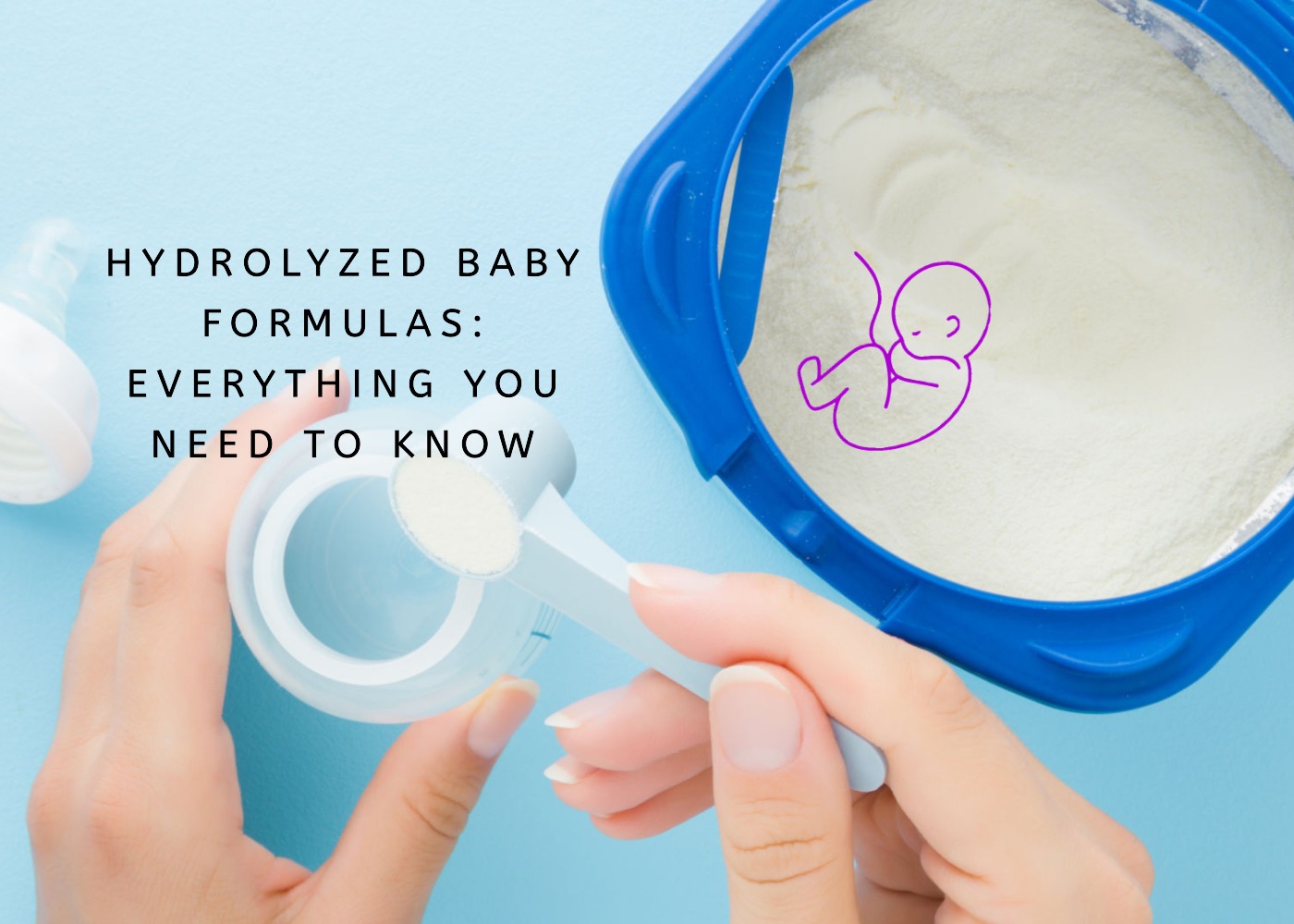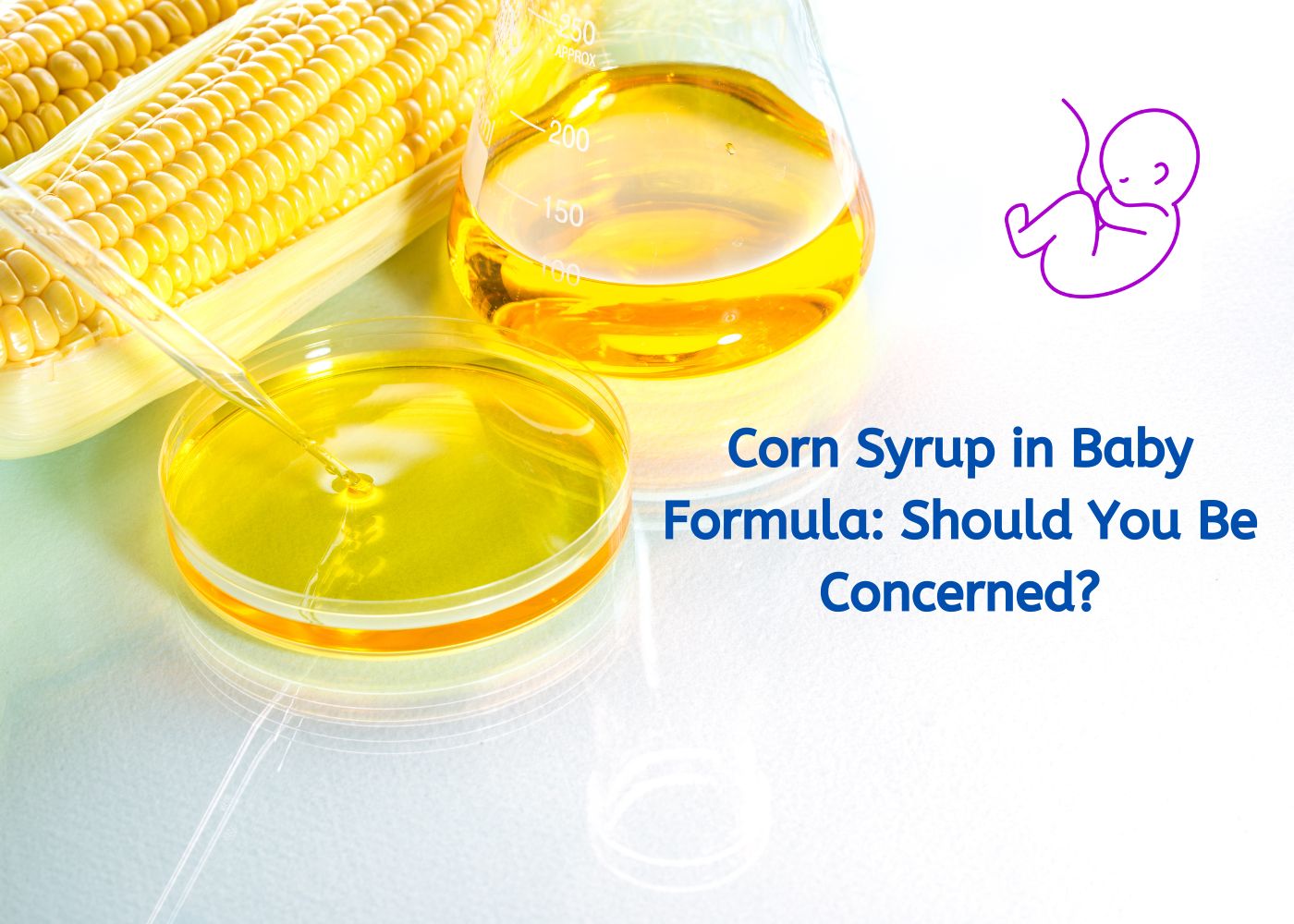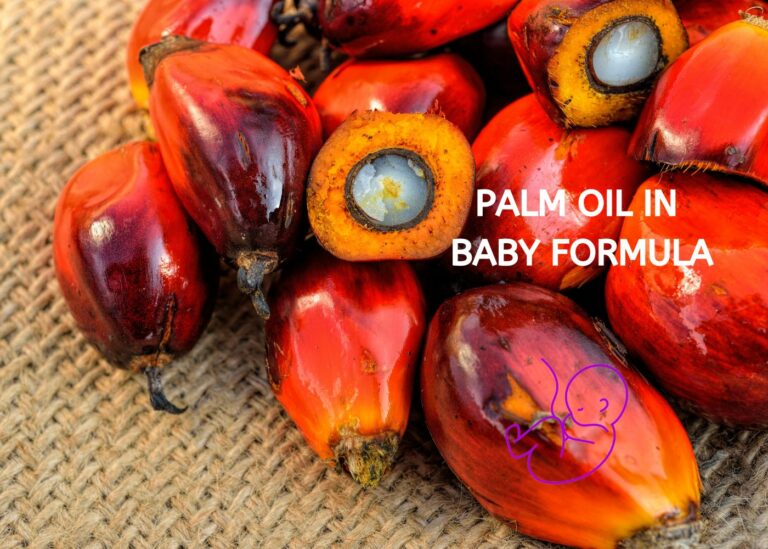
Key Takeaways. Pros and Cons of Starch in Baby Formulas
| Starch in Baby Formula | |
|---|---|
| PROS ✅ | |
| Energy Source | Starch provides essential carbohydrates for babies’ growth and energy needs. |
| Hunger Control | Due to slow-release energy properties, starch helps keep babies feeling fuller for longer. |
| Texture Improvement | Adding starch improves the formula’s texture, making it creamier and more appetizing. |
| Easy Digestion | The addition of starch improves formula’s texture, making it creamier and more appetizing. |
| Non-Sweet Taste | Starch doesn’t contribute to developing a sweet tooth (excluding corn syrup solids). |
| CONS ❌ | |
| Digestive Issues | In babies below six months, starch might cause digestive problems (gas, bloating, diarrhea) due to underdeveloped enzymes. |
| Hindered Absorption | Too much starch might affect the absorption rate of other nutrients in the formula. |
| Allergy Concerns | Some babies might develop allergies or intolerances towards specific types of starches used in infant formula. |
| Picky Eating Habits | Too much exposure to starch-based products early in life might contribute to picky eating habits later on. |
In this article, we will discuss what starch is and its potential impacts on infant health.
Our aim is to help new parents make an informed decision when choosing a formula for their baby.
Let’s get after it!
Our short opinion
As in our article on maltodextrin, starch is an ingredient that is generally best avoided.
That said, some babies can benefit from this additive.
For babies who digest lactose poorly, either because of allergies or intolerances, starch, and maltodextrin are carbohydrates that replace lactose and provide the necessary energy.
However, for babies without any digestive problems, lactose-only formulas, without added sugars, whether corn syrup solids, maltodextrin, or starch, are the way to go.
What Is Starch In Baby Formula?
Starch in baby formula refers to using plant-based polysaccharides as a source of carbohydrates in infant formulas.
It is commonly found in various ingredients such as rice starch, modified corn starch, maltodextrin, and corn syrup solids.
These are added to the formula to provide essential carbs that babies need for energy, satisfy their hunger for longer durations, and serve as a thickening agent, giving the formula a creamier texture.
In most cases, starch added to baby formula does not cause any harm to babies aged six months or older who have already begun consuming solid foods such as potatoes and rice.
However, some younger infants may experience digestive problems due to an underdeveloped enzyme system that breaks down starches.
As a result, parents need to monitor their child’s reactions when introducing them to formulas containing starch and consider alternatives if required.
Starch in baby formula provides carbohydrates and texture.
It’s generally safe for older infants, but younger ones with underdeveloped enzyme systems may experience digestive issues.
Monitor reactions and consider alternatives if needed.
What types of starch are used in infant formula?
Depending on their source and modification process, the various types of starch added to infant formulas have specific benefits and drawbacks.
This section will discuss some common forms of starches used in baby formula and their potential effects on babies.
Modified corn starch and maltodextrin are commonly used in infant formulas as digestible carbohydrate sources, while rice starch is used for specific conditions.
Corn syrup solids provide energy but raise concerns about sugar content.
Modified Corn Starch
Modified corn starch is a derivative of corn that has been processed to change its physical properties, making it easier for infants to digest.
It acts as a thickener. Due to its modified nature, it tends not to cause spikes in blood sugar levels and has slow-release energy characteristics.
While modified corn starch is generally safe for most infants six months or older, some younger babies may still experience digestive problems due to inadequate enzyme production required to break down starch efficiently.
Parents should also be aware that modified corn starch is often derived from genetically modified crops; however, the market also offers organic options without GMOs.
Maltodextrin
Maltodextrin is another common type of modified starch used in infant formula manufacturing. *Read: Maltodextrin in Baby Formula
It is typically derived from corn or potato and has shorter glucose chains compared to unmodified starches, making it more digestible for babies’ developing gastrointestinal systems.
Like modified corn starch, maltodextrin is a carbohydrate source and a thickening agent within the formula.
Despite being gentler on digestion than unmodified starches, some babies may still have difficulty digesting maltodextrin due to individual variations in enzyme development during early infancy.
Rice Starch
Rice starch is another type of starch commonly used in infant formulas, specifically those designed to address certain issues such as reflux or sensitive stomachs.
Derived from rice grains, this starch provides essential carbohydrates and is a thickening agent that helps reduce regurgitation by making the formula slightly thicker.
Although most babies consider rice starch safe and well-tolerated, it may not be the best option for infants experiencing digestive difficulties due to their underdeveloped enzyme systems.
Moreover, some concerns regarding rice-based products have arisen due to potential exposure to arsenic levels above safe limits.
Corn Syrup Solids
Corn syrup solids, another carbohydrate source found in baby formulas, are derived from corn syrup through a dehydration process that results in a powdered form.
While these solids provide energy and nutrients for growing babies, they are essentially sugar molecules derived from cornstarch which can cause concern among some parents. Read: Corn Syrup in Baby Formula
Despite their sweet nature and higher glycemic index compared to other carbohydrate sources like maltodextrin or modified corn starch, corn syrup solids do not have the same risks associated with table sugar or high fructose corn syrup regarding obesity or early development of preferences for sweets.
Why is starch used in baby formula?
Starch is incorporated into baby formulas for various reasons, including its role as a carbohydrate source, a thickening agent, and enhancement of texture and palatability.
Starch in infant formulas provides essential carbohydrates for energy, reduces hunger, improves texture, and is easily digestible when modified.
However, it can cause digestive issues, hinder nutrient absorption, and potentially lead to allergies or picky eating habits.
Benefits
Energy Source: Starch provides essential carbohydrates that babies need to support their growth and development by supplying energy.
Reduced Hunger: Due to its slow-release energy properties, starch can help keep babies feeling fuller for more extended periods, making it useful for more active or hungrier infants.
Texture Improvement: Adding starch enhances the formula’s texture by making it creamier and more appetizing.
Easy Digestion (when modified): Modified forms of starch such as maltodextrin offer easier digestion compared to unmodified counterparts due to shorter glucose chains that are quicker to break down in developing digestive systems.
Non-sweet taste: Starch does not contribute to the development of a sweet tooth since it doesn’t have a sweet taste like most simple sugars. (not applicable to corn syrup solids which might promote it)
Dangers
Digestive Issues: In some cases, especially for younger babies below six months, starch may be harder to digest due to the underdevelopment of enzymes required for proper breakdown – this may lead to gas, bloating, or diarrhea.
Hindered Absorption: Too much starch in a formula can affect the absorption rate of other nutrients present in the blend if an infant’s ability to digest it is limited.
Allergy and Intolerance Concerns: Some babies might develop allergies or intolerances towards specific types of starches used within their infant formula product that could cause discomfort or health issues if not addressed promptly.
Picky eating habits development: Though less likely than sugars like sucrose or high-fructose corn syrup, too much exposure to starch-based products early in life might contribute to picky eating habits later on.
Conclusion
As mentioned, additives like starch in formula should always be avoided if possible, but some babies can benefit from them.
If a baby has difficulty digesting lactose, formulas with lactose substitutes are appropriate, such as hypoallergenic formulas.
For any other case, it is always best to find an organic additive-free formula with the highest possible quality.
As always, consulting with a pediatrician before making drastic changes to our baby’s formula is a good idea.
We’re Maria and Alberto, a married couple and educators who are nutrition enthusiasts. Even before we had kids, we were already crazy about nutrition.
We’d read scientific articles, watch videos from nutritionists, and spend hours listening to nutrition podcasts.
Today, we continue doing this, but in a different way, as we’ve learned to sift through the noise and trends. Nutrition, like any other field of knowledge, the more you read and learn, the more you develop a comprehensive understanding of reality, and that’s what has happened to us.
Before having our first child, we focused on learning everything we could about child nutrition, using the same techniques we had already employed, backed by our extensive knowledge in nutrition.
Our mission is to help other parents with their children’s nutrition, to help them become the best versions of themselves.
If we are what we eat and drink, which is absolutely true, let’s do it right!







